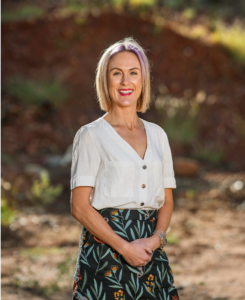
From sleeping rough in parklands to skipping medical appointments, the additional burden of out-of-pocket healthcare expenditure is widening the healthcare gap for Aboriginal households in rural and remote regions.
The rising cost of living, including the need to travel long distances to medical appointments, as well as income limits and shortages of housing and medical services, also adds to the health burden on rural and remote communities.
In particular, Aboriginal families in remote regions face even higher out-of-pocket healthcare expenditure (or OOPHE) - which includes additional healthcare expenses not covered by universal taxpayer insurance (i.e. Medicare) - due to additional health needs and multiple barriers to getting appropriate care.
In a new article in the Rural and Remote Health journal, experts in Indigenous health worked closely with Aboriginal communities from South Australia's Far West region to examine these impacts
"Via seven yarning sessions with 10 participants in the Ceduna and Yalata, we identified themes of barriers to focused health care, cost of taxis and travel, restricted autonomy, financial strain (affected by the cashless debit card and Patient Assistance Transport Scheme system), personal and social loss and need for more support initiatives and protective factors," says chief investigator, Flinders University researcher Associate Professor Courtney Ryder.

"Participants told stories of sleeping rough in the parklands due to the cost of accommodation, of being too scared to use public transport and of selling assets and not attending appointments because of the additional strain of OOPHE."
Aboriginal Australians face significant health disparities, with hospitalisation rates 2.3 times greater, and longer hospital length of stay, than non-Indigenous Australians.
Researchers are calling for radical change of government initiatives and policies, through to the need for health professional awareness is needed to ensure equitable healthcare access that does not create additional financial hardship in communities already experiencing economic disadvantage.
The OOPHE burdens includes gaps in medical costs, and associated additional expenses such as travel, medication, equipment, accommodation and time off work, which are not covered by Medicare, private health insurance or other government initiatives.
As a result, OOPHE is a significant risk factor for developing or exacerbating existing chronic and complex conditions.
"It has been associated with negative health outcomes and even death as a result of delaying or avoiding treatment, with one in four Australians forgoing medical treatment due to OOPHE," adds Associate Professor Ryder.
A previous study between 2019 and 2020, found OOPHE created a $30 billion economic burden, with the most marginalised communities in Australia being inequitably impacted.
The most recent Senate inquiry on out-of-pocket costs identified Aboriginal communities as one of the most vulnerable communities impacted by OOPHE, with Aboriginal Community Controlled Health Organisations (ACCHOs) reporting patients choosing to defer appointments with GPs due to costs, and some chronic kidney disease patients forgoing dialysis, resulting in death.
Every year in Australia, it is estimated that 250,000 hospital admissions and 400,000 emergency department presentations occur due to medicine misuse, costing A$1.4 billion each year. More than half of these events are preventable.
Aboriginal and Torres Strait Islander peoples have a rate of potentially preventable hospitalisations 4.9 times greater than other Australians.
Poor communication is a well-established risk factor contributing to adverse medicine events. For a medicine to be used effectively, treatment decisions need to be conveyed to consumers and their support people in ways they understand.
See more 'Medicine communication between Aboriginal and Torres Strait Islander peoples and health professionals' (2024) by Tobias Speare, Chris Rissel, Jaquelyne Hughes, Courtney Ryder, Madeleine Bower, Kylie Stothers and Tamara Mackean in JBI Evidence Synthesis DOI: 10.11124/JBIES-23-00098
The article, 'Experiences and impacts of out-of-pocket healthcare expenditure on remote Aboriginal families' (2024) by Courtney Ryder, Shane D'Angelo, Patrick Sharpe, Tamara Mackean, Nayia Cominos, Julieann Coombes, Keziah Bennett-Brook, Darryl Cameron, Emily Gloede, Shahid Ullah and Jacqueline Stephens has been published in Rural and Remote Health journal. DOI: 10.22605/RRH8328.
Acknowledgements: The researchers wish to acknowledge all Aboriginal countries that this research was created over: Kaurna, Kokatha, Mirning, Wirangu, Ngarrindjeri, Arrernte and Eora. We pay respect to Elders past present and emerging. Sovereignty was never ceded.
The research was funded by a Flinders University College of Medicine and Public Health Kickstart Grant.






